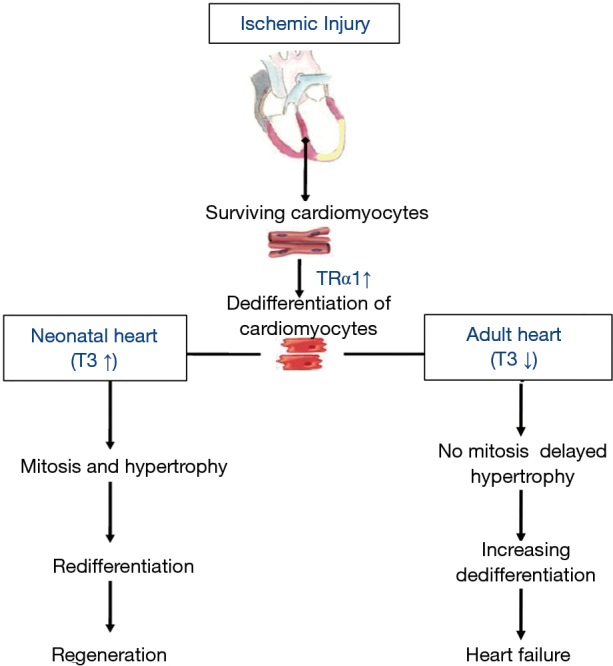Figure 1.

Changes in thyroid hormone signaling determine the response of the heart after ischemic injury. The initial response of the adult heart to injury involves enhanced expression of thyroid hormone receptor α1 (TRα1) contributing to dedifferentiation. In this context, low T3 blocks the regenerative response and leads to increasing dedifferentiation, dysfunction and heart failure. However, high T3 levels combined with increased expression of TRα1 (neonatal heart) lead to increased cardiac mass (proliferation and hypertrophy), redifferentiation and regeneration. ↑, increase; ↓, decrease.
